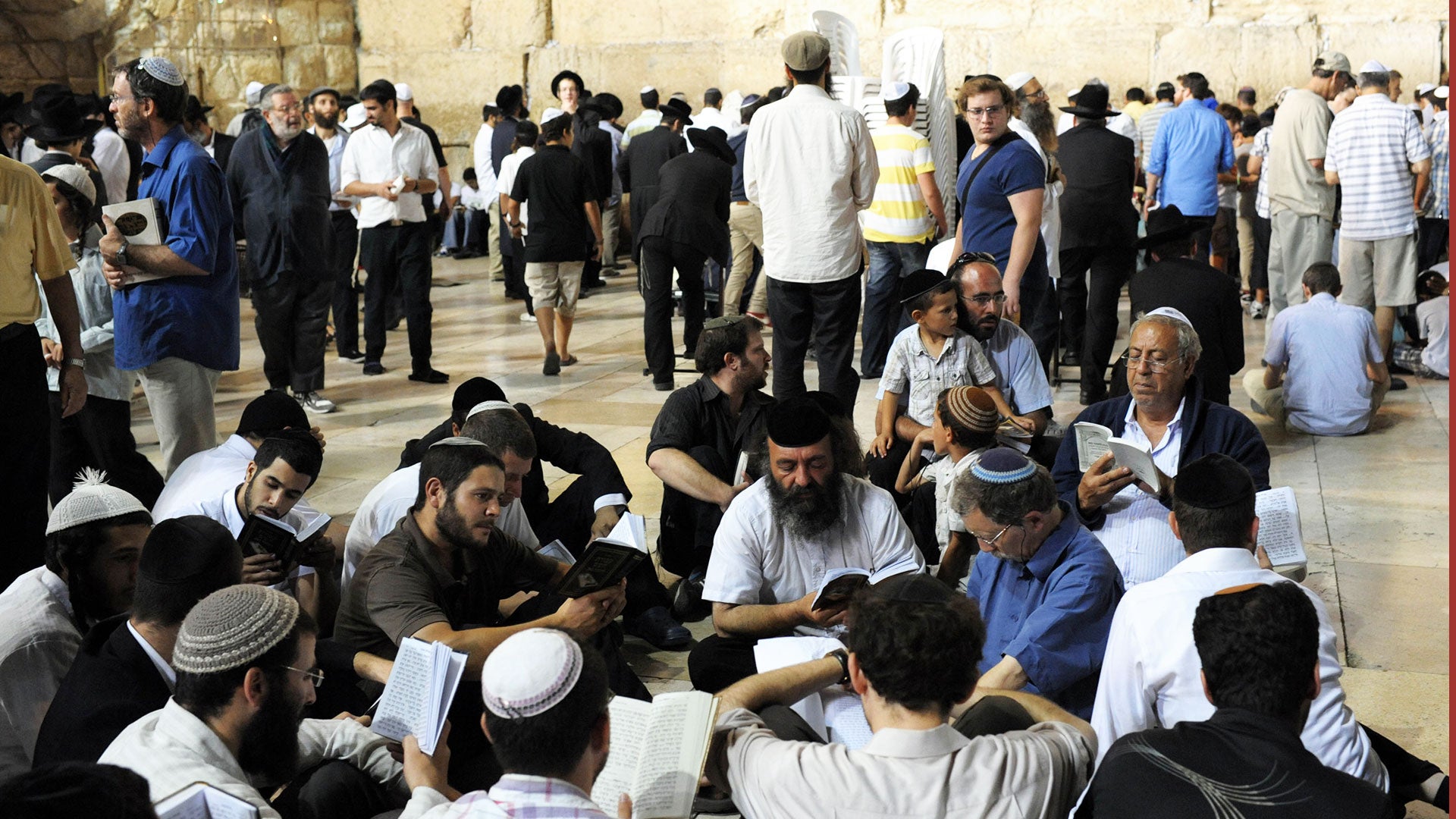
Tisha B'Av: Grieving in Zion Births Hope for the Future
JERUSALEM, Israel – The streets of Jerusalem are quiet this morning. There's very little traffic coming into town. At sundown Monday, Israelis began observing Tisha B'av, literally the ninth day of the Hebrew month of Av. Known as the saddest day on the Jewish calendar, Tisha B'av is observed with fasting, mourning and prayer.
Judaism teaches that both the first and second temples were destroyed on that day, along with numbers of other tragedies that befell the Jewish people throughout history.
On Tisha B'av, synagogues cover the ark housing the Torah scroll with a black cloth. Among other expressions of mourning, men don't shave and women don't put on makeup. Some sit on the floor as they pray and in Israel, many come to the Kotel (Western Wall) in Jerusalem's Old City to rend their hearts before the Lord.

Jews read the Book of Lamentations, written by the prophet Jeremiah following the destruction of the first temple, built by King Solomon and destroyed by the Babylonians in 586 BC. On the same day in 70 AD, the Romans destroyed the second temple built by Herod.
A three-week mourning period precedes Tisha B'av, which this year began on July 10. Just four days later, on July 14, two Israeli police officers were shot dead on the Temple Mount, the same site where the temples once stood.
Israel responded to the incident with upgraded security measures, including metal detectors, used at many locations worldwide.
But the Palestinian Authority and the Jordanian Wakf were having no part of it. They called on the Muslim population to protest the measures, sparking two weeks of violent demonstrations outside the entrance to the Temple Mount, as well as in Arab neighborhoods in east Jerusalem and cities and towns in Judea and Samaria (the West Bank).
Quiet returned to the Temple Mount this past Friday, three days before Israelis mourn the destruction of the temples and other tragedies, such as the Holocaust, that have befallen the Jewish people over millennia.
In a commentary entitled, "Prisoners of Hope: Why We Mourn on Tisha B'Av," Miriam Kosman writes, "There was a beginning – the Exodus from Egypt – and there will be an end, a time when we reclaim the relationship of love that started then. During the long middle of this story, we hold on to the vision we were shown at Sinai, hold on to it for dear life. We experienced that love once, and forever more we yearn for it."
This year, Israel Police said the annual march around the Old City walls, sponsored by Women in Green, may have to change its route or be cancelled due to increased security concerns.
"The final decision to authorize the "Walk around the Walls" will only be given at the last minute," the organization said on its website. "We hope that mass participation in the Eicha [Lamentations] reading in Independence Park will persuade the police not to capitulate to terror and to allow our traditional walk."
It seems an anti-Israel incident takes place almost daily somewhere in the world. Still Jews cling to the promise of redemption spoken by the same prophet who penned Lamentations.
"Behold, the days are coming, says the Lord, when I will make a new covenant with the house of Israel and with the house of Judah – not according to the covenant that I made with their fathers in the day that I took them by the hand to lead them out of the land of Egypt, My covenant which they broke, though I was a husband to them, says the Lord. But this is the covenant that I will make with the house of Israel after those days, says the Lord: I will put My law in their minds and write it on their hearts; and I will be their God, and they shall be My people. No more shall every man teach his neighbor and every man his brother, saying, 'Know the Lord,' for they all shall know Me, from the least of them to the greatest of them, says the Lord. For I will forgive their iniquity and their sin I will remember no more." ( )
---
Photos Courtesy of GPO archive, Amos Ben Gershom



